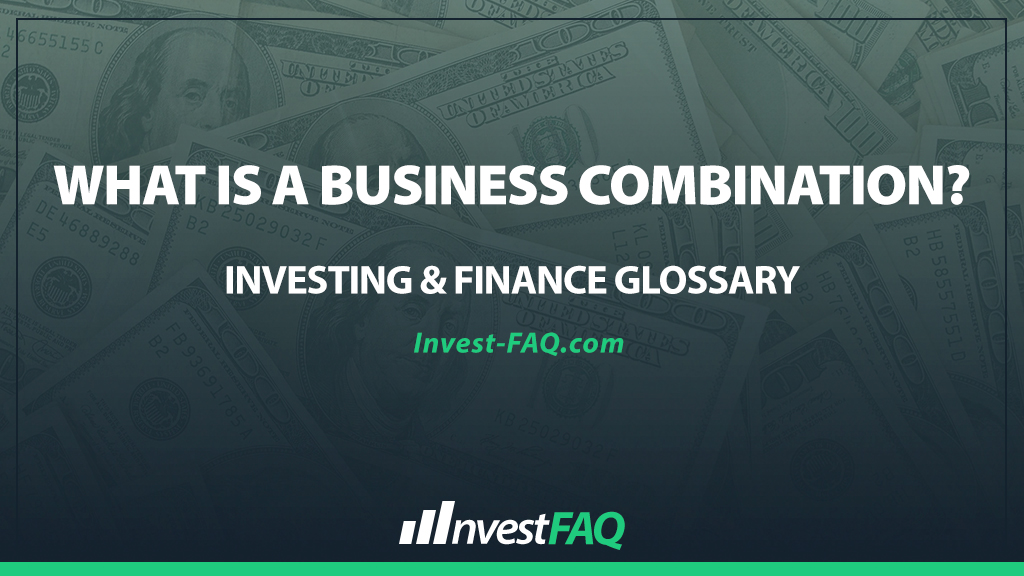
Business Combination
Contents
A business combination is a transaction or event in which an acquirer gains control over one or more businesses. This can include mergers, acquisitions, consolidations, or the purchase of assets that constitute a business, allowing companies to expand their operations, enter new markets, or acquire new technologies and skills.
Business combinations are strategic tools used by companies to achieve rapid growth, enhance competitive advantages, and increase shareholder value.
Through these transactions, companies can achieve synergies, diversify their product offerings, or eliminate competition.
The process involves evaluating potential targets, conducting due diligence, negotiating terms, and finally, integrating the acquired operations into the existing business framework.
Example of a Business Combination
Imagine “TechForward Inc.,” a technology firm, acquires “Innovate Solutions,” a smaller competitor, for $500 million. The purchase price is allocated based on the fair values of Innovate Solutions’ identifiable assets and liabilities at the acquisition date.
Suppose Innovate Solutions’ assets are valued at $400 million and liabilities at $100 million, resulting in a net asset value of $300 million. The excess of the purchase price over the net asset value, $200 million, is recorded as goodwill.
In accounting terms, the transaction would be recorded as follows:
Assets Acquired: Increase by $400 million, reflecting the fair value of Innovate Solutions’ assets.
Liabilities Assumed: Increase by $100 million, reflecting the fair value of Innovate Solutions’ liabilities.
Goodwill: Increase by $200 million, representing the premium paid over the net identifiable assets and liabilities.
This accounting treatment highlights the financial impact of the business combination on TechForward Inc.’s balance sheet.
The acquisition not only increases the company’s asset base but also introduces new liabilities and creates goodwill, an intangible asset reflecting the future economic benefits expected from the combination.
The process of allocating the purchase price to the fair values of acquired assets and liabilities is crucial for accurately reflecting the financial position post-acquisition.
Significance for Investing & Finance
The concept of a business combination is significant in accounting for several reasons:
Fair Value Measurement: It requires the accurate measurement of the fair values of assets acquired and liabilities assumed, ensuring the financial statements reflect the true economic impact of the transaction.
Goodwill and Intangible Assets: Business combinations often result in the recognition of goodwill and other intangible assets, necessitating careful management and periodic impairment testing.
Financial Reporting: Proper accounting for business combinations enhances the transparency and comparability of financial reports, providing stakeholders with meaningful insights into the company’s growth and strategic direction.
Regulatory Compliance: Adhering to accounting standards for business combinations, such as IFRS 3 or ASC 805, ensures compliance with financial reporting regulations and guidelines.
In summary, a business combination is a transformative event that can significantly alter a company’s market position, operational capabilities, and financial statements. Accurate accounting and reporting of these transactions are critical for reflecting their economic realities and for strategic decision-making, compliance, and investor relations.
FAQ
What distinguishes a merger from an acquisition in the context of business combinations?
A merger occurs when two companies of roughly equal size agree to go forward as a single new entity, sharing ownership and control, whereas an acquisition involves one company (the acquirer) purchasing and gaining control over another company (the target), which may not retain its separate identity.
How does the accounting for goodwill arise in a business combination?
Goodwill arises in a business combination when the purchase price paid for an acquired company exceeds the fair value of its net identifiable assets and liabilities; it represents the future economic benefits from synergies, brand, customer loyalty, or other intangible assets that are not separately recognized.
What role does due diligence play in a business combination?
Due diligence is a critical process in a business combination, involving a detailed examination of the target company’s financial performance, legal obligations, operational efficiencies, and market position to assess its value and identify potential risks before finalizing the transaction.
Can a business combination affect the competitive landscape of an industry?
Yes, a business combination can significantly affect the competitive landscape by altering market share, reducing competition, or creating a more dominant entity with enhanced capabilities, potentially leading to regulatory scrutiny to ensure fair competition practices are maintained.
